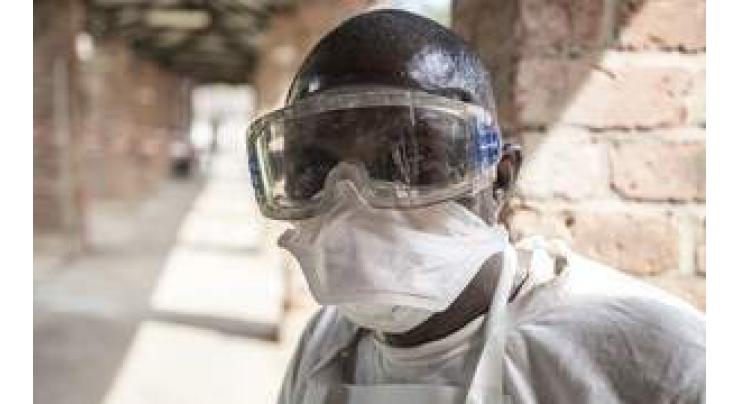
UN Officials Call For Strong, People-focused Health Systems
Umer Jamshaid Published May 22, 2018 | 11:30 AM

Everyone around the world must have equal access to quality health care, top United Nations officials said, while urging greater focus on comprehensive health and well-being.
UNITED NATIONS, (UrduPoint / Pakistan Point News - 22nd May, 2018 ) :Everyone around the world must have equal access to quality health care, top United Nations officials said, while urging greater focus on comprehensive health and well-being.
In a video message to the opening of seventy-first session of World Health Assembly in Geneva on Monday, Secretary-General Antonio Guterres reiterated that the enjoyment of the highest attainable standard of health is a fundamental human right.
The World Health Assembly is the highest decision-making body of the World Health Organization, WHO. It determines the agency's polices, supervises financial policies, and reviews and approves the proposed programme budget.
"We need strong resilient systems that place people at the centre," Guterres said. "Universal health coverage provides the foundation to help us overcome the inequities that continue to leave so many behind." Ensuring that everyone, everywhere has access to quality health care and services, is also vital for the achievement of the Sustainable Development Goals (SDGs), stressed the UN chief.
Tedros Adhanom Ghebreyesus, WHO's Director-General, also addressed the Assembly, emphasizing the importance of universal health coverage, as illustrated by the ongoing Ebola outbreak in the Democratic Republic of the Congo (DRC).In particular, Sustainable Development Goal 3 (SDG 3), which has specific targets to ensure healthy lives and promote well-being at all stages in life.
In addition, health improvements feature prominently in many of the other ambitious Goals. The WHO chief outlined a number of initiatives at the UN health agency to advance universal coverage and urged greater political commitment: "It's clear that the twin messages of health security and universal health coverage resonate loudly with world leaders," he said.
Tedros also highlighted critical upcoming events focused on global health, including two high-level meetings; on non-communicable diseases and on tuberculosis at the upcoming session of the UN General Assembly which begins in September.
"The people who suffer from these diseases all over the world are relying on us: the people who cannot get the care they need; the people who cannot afford the care they need; the people who are even aware they are infected with a potentially deadly pathogen," he said.
"We owe it to them to ensure that we do not waste the opportunities". Separately on Monday, WHO announced that the vaccination of health workers in areas of the DRC effected by the Ebola virus, has begun.
Together with the Government and partner organizations, WHO is also preparing to start a so-called ring vaccination programme, whereby the contacts of confirmed cases and the contacts of those contacts will be offered immunization, using the experimental drug.
"We need to act fast to stop the spread of Ebola by protecting people at risk of being infected with the Ebola virus, identifying and ending all transmission chains and ensuring that all patients have rapid access to safe, high-quality care," WHO Deputy Director-General for Emergency Preparedness and Response, Peter Salama said.
While the rVSV-ZEBOV Ebola vaccine is yet to be licensed, it was highly protective against Ebola in a major trial in 2015 in Guinea, WHO said. Earlier results have been promising with the agency reporting that among the 5,837 people who received the vaccine, no positive cases were recorded nine days or more after vaccination.
Related Topics
Recent Stories

Selection committee dissolved over Pakistan women cricket team's poor performanc ..

Punjab CM Maryam Nawaz in police uniform at Chung police center

Currency Rate In Pakistan - Dollar, Euro, Pound, Riyal Rates On 25 April 2024

Today Gold Rate in Pakistan 25 April 2024

Mired in crisis, Boeing reports another loss

Session Awarding Ceremony 2024 held at Cadet College Muzaffarabad

Austrian ski great Hirscher to make comeback under Dutch flag

Pakistan, Japan agrees to convene 'Economic Policy Dialogue'

FM Dar conveys deepest sympathy on torrential rains devastation in UAE

Spain PM Sanchez says weighing resignation after wife's graft probe

Tennis: ATP/WTA Madrid Open results - 1st update

Long-lost Klimt portrait auctioned off for 30 mn euros
More Stories From Health
-

Vaccines save at least 154 million lives in 50 years: WHO
17 hours ago -

UHS to issue MBBS degrees within three months after final result
21 hours ago -

Rawalpindi woman gives birth to six babies
6 days ago -

DC calls for intensive anti-polio drive in ICT
7 days ago -

World Hemophilia Day observed to underscore importance of providing comprehensive care
8 days ago -

Six in a family with heart on the 'right side'
8 days ago
-

Diabetic disease increasing rapidly : Dr. Noor Elahi Memon
8 days ago -

World Hemophilia Day observed
8 days ago -

ATC dismisses bail petition of doctor involved in illegal kidneys transplant
16 days ago -

Dr. Shehzad warns against deviation from WHO guidelines on anti-smoking
16 days ago -

Health activists express concerns over attempts to derail tobacco control
18 days ago -

UHS declares MBBS first prof, MS urology exam results
27 days ago











